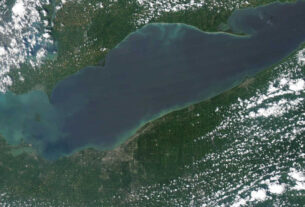In a bold step toward closing the climate finance gap in vulnerable regions, the GAIA platform has been launched with a substantial $1.48 billion commitment. Co-founded by FinDev Canada, MUFG Bank, and the Green Climate Fund (GCF), this groundbreaking initiative aims to tackle the growing financing challenges faced by developing countries, particularly those in Latin America, Africa, and Asia. Focused on climate adaptation and mitigation, GAIA’s funding is intended to support a wide range of critical climate projects in up to 25 emerging markets.
A New Model for Climate Finance in Emerging Markets
GAIA represents a new approach to climate finance through its innovative blended finance model. The platform combines commercial capital, concessional financing, and grant funding to create a flexible and impactful financial structure. By targeting regions most vulnerable to the effects of climate change, such as Small Island Developing States (SIDS) and Least Developed Countries (LDCs), GAIA aims to channel much-needed funds to projects that focus on climate adaptation, with 70% of the portfolio dedicated to these efforts. The remaining 30% will be allocated to climate mitigation projects.
The platform’s broad goal is to help these vulnerable regions address pressing challenges such as water scarcity, renewable energy access, low-carbon transport, and green buildings. These projects are critical to building resilience and achieving long-term sustainable development goals (SDGs), in line with global agreements like the Paris Agreement.
A Public-Private Partnership with Global Reach
GAIA’s launch was supported by key global partners and reflects the increasing role of public-private partnerships in addressing climate change. In particular, the platform benefits from Canada’s concessional finance facility, a commitment announced at the G7 Summit in June 2024, which marks the Canadian government’s ongoing leadership in global climate and development finance. This will facilitate climate finance specifically targeting climate-vulnerable regions, where projects often face high risks and limited access to traditional financing.
Speaking about the platform, Lori Kerr, CEO of FinDev Canada, highlighted its importance: “GAIA symbolizes Canada’s leadership in climate and development finance and accelerates the mobilization of much-needed investment in climate-vulnerable regions.”
The platform is managed by Climate Fund Managers and supported by Pollination, a global climate advisory firm, with USAID also playing a crucial role in its development. This collaborative model is designed to overcome the existing $5.5 trillion global financing gap for climate action, which is one of the major barriers to achieving climate-related SDGs.
The Role of the Green Climate Fund (GCF)
As one of the platform’s key supporters, the Green Climate Fund (GCF) is serving as a first-loss investor in GAIA. Mafalda Duarte, Executive Director of the GCF, emphasized the fund’s commitment: “The Green Climate Fund is proud to be a first-loss investor in the GAIA platform. Together, we’re set to channel private adaptation finance to some of the world’s most climate-vulnerable regions.”
GAIA’s funding is specifically designed to help these countries build resilience against climate risks, reduce emissions, and unlock sustainable growth. The GCF’s involvement is particularly significant in terms of de-risking projects and attracting private sector investors who may otherwise be hesitant to invest in high-risk regions.
Fostering a More Sustainable and Inclusive Global Economy
With climate change threatening vulnerable regions at an increasing rate, GAIA aims to address not just environmental challenges but also the economic inequalities that exist within them. By focusing on sustainable development and aligning with Canada’s $100 billion climate adaptation target by 2025, GAIA ensures that the platform is both impactful and inclusive.
Fumitaka Nakahama, Chief Executive of MUFG, praised GAIA for its potential to create systemic change: “GAIA has the potential to redefine the landscape of climate finance and advance a more sustainable and inclusive global economy.” This aligns with broader global efforts to accelerate investments that will help economies mitigate and adapt to climate impacts.
Bridging the Financing Gap through Blended Finance
One of the key advantages of GAIA is its ability to bridge the climate finance gap by using blended finance structures. This model allows public funds to absorb initial risks, enabling private capital to flow into climate projects that might otherwise be too risky or difficult to fund. Andrew Johnstone, CEO of Climate Fund Managers, explained that GAIA would play a critical role in increasing access to climate finance for the world’s most vulnerable countries, emphasizing the platform’s importance in unlocking commercial capital for projects that align with the Paris Agreement.
The inclusion of risk mitigation strategies in GAIA’s model also ensures that projects are protected from unexpected challenges, such as political instability or adverse environmental impacts. These safeguards make it easier for investors to commit capital to projects that can help developing countries achieve sustainable growth and resilience.
Conclusion: A New Era of Climate Finance
The launch of the GAIA platform is a landmark event in the journey to combat climate change, especially in the world’s most vulnerable regions. With its blend of public and private investments, the platform provides a model for how to tackle the climate finance gap and ensure that emerging markets are not left behind in the global effort to mitigate and adapt to the impacts of climate change. By providing access to innovative climate finance solutions, GAIA is positioning itself as a key player in advancing the climate resilience of Small Island Developing States (SIDS) and Least Developed Countries (LDCs).
As global partnerships continue to evolve in response to the growing climate crisis, the success of GAIA will likely set a precedent for future financing initiatives that aim to build a sustainable, equitable, and climate-resilient world.
References:
- FinDev Canada’s Role in Climate Finance – FinDev Canada
URL: https://www.findevcanada.ca - Green Climate Fund: Strategic Vision for Climate Finance – Green Climate Fund
URL: https://www.greenclimate.fund - The Role of Blended Finance in Climate Action – Climate Fund Managers
URL: https://www.climatefundmanagers.com - Canada’s Climate Adaptation Commitment – Government of Canada
URL: https://www.canada.ca - Understanding Blended Finance Models for Climate Resilience – Pollination
URL: https://www.pollinationgroup.com

